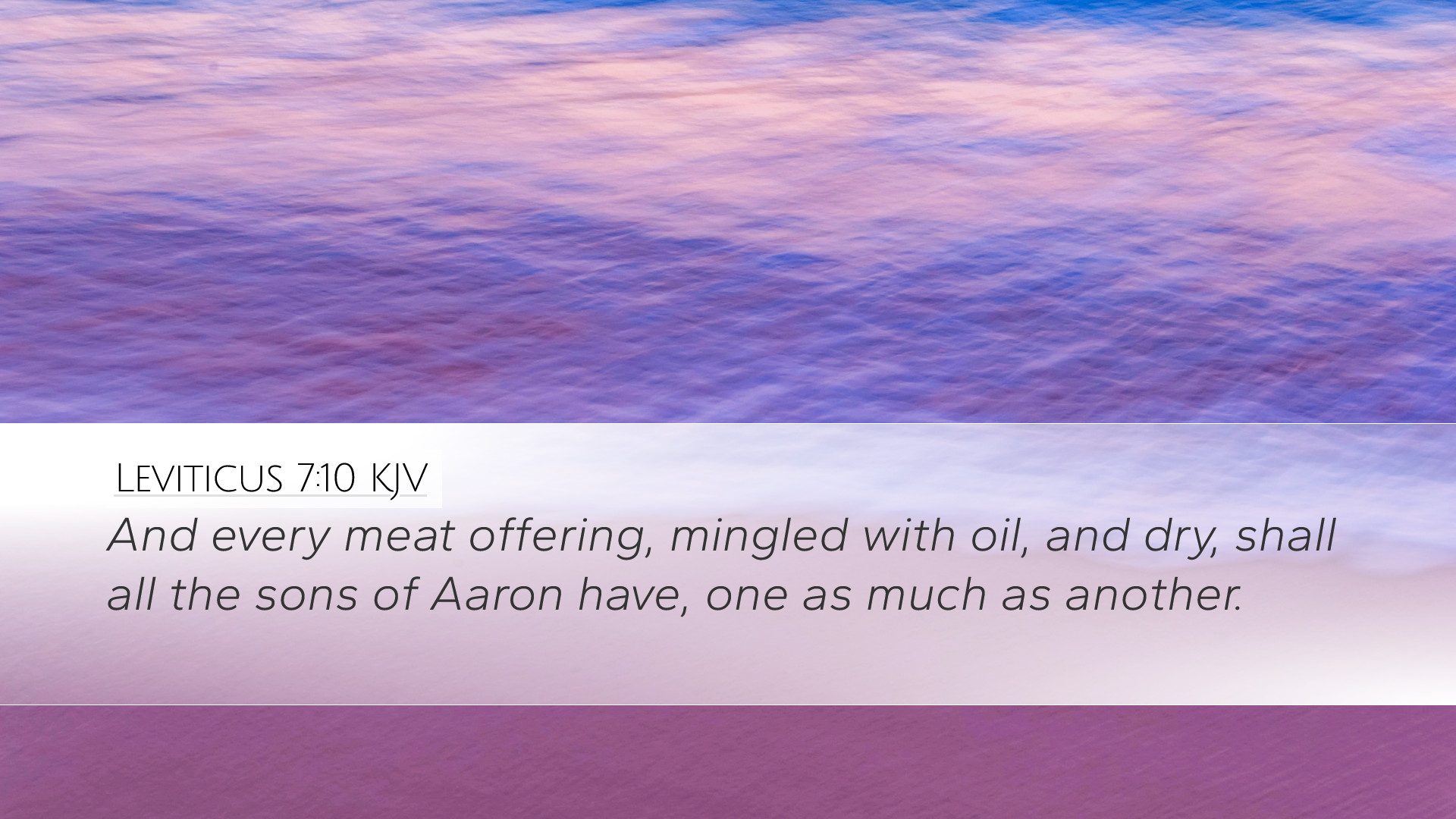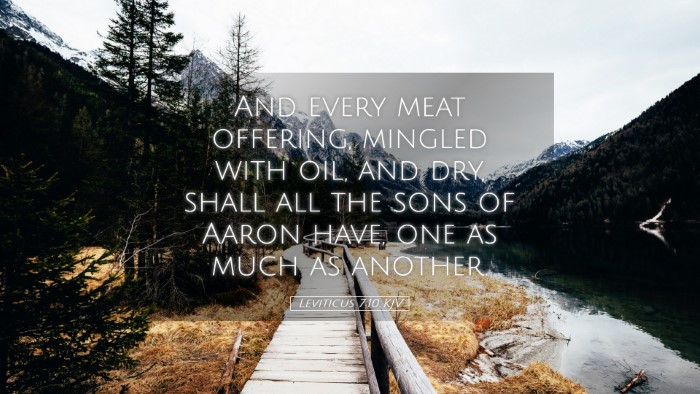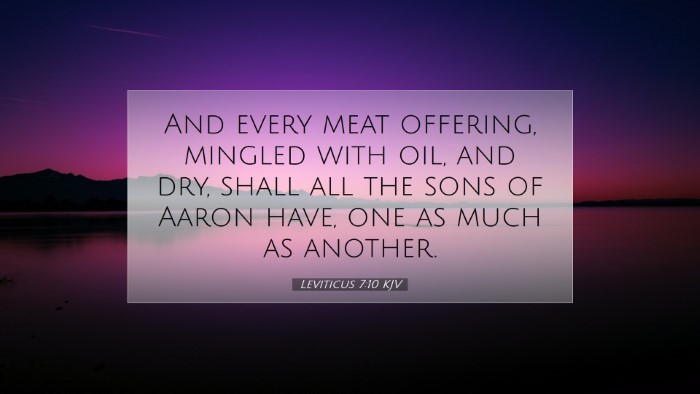Commentary on Leviticus 7:10
Bible Verse: "And his offering shall be of the flour of the grain, and of the oil, and of the wine; and he shall bring his own offering unto the Lord." (Leviticus 7:10)
Introduction
The book of Leviticus provides key insights into the ceremonial laws governing worship, sacrifice, and the holiness expected of the Israelites. In Leviticus 7:10, we are presented with instructions pertaining to the grain offering, a significant part of the sacrificial system. This commentary compiles insights from renowned public domain scholars to enrich the understanding of this scripture.
Exegesis and Spiritual Insights
This verse can be understood best when contextualized within the broader sacrificial laws outlined in Leviticus. The grain offering, or minhah, is of profound importance as it symbolizes both homage and thanksgiving to God. Scholars, including Albert Barnes and Adam Clarke, offer the following insights.
The Nature of the Offering
Matthew Henry comments on the essence of the grain offering, noting that it represents the fruit of one's labor. It serves as a reminder that all blessings and provisions come from the Lord. In this manner, the offering reflects gratitude for God’s bountiful provision.
Furthermore, Albert Barnes emphasizes the voluntary nature of this offering. Unlike sin offerings, which were mandatory for atonement, the grain offering springs from a heartfelt desire to worship and acknowledge God's goodness. This aspect of voluntariness is crucial as it highlights the believer's personal relationship with God, characterized by joy and thankfulness.
Components of the Offering
According to Adam Clarke, the specific elements mentioned in this verse—flour, oil, and wine—each hold symbolic meanings. Flour represents sustenance; oil signifies the presence of the Holy Spirit and anointing; and wine illustrates joy (as described in Ecclesiastes 3:13). Together, they encompass a holistic approach to worship, emphasizing that an acceptable offering to God must be complete and multifaceted.
Personal Responsibility in Worship
The phrase “he shall bring his own offering” indicates a personal responsibility in worship. Matthew Henry elucidates this point, stating that worship must not only be communal but also individual. Each believer is invited to approach God personally, bringing their unique offerings. Such participation nurtures a deeper faith and relationship with the Divine.
Theological Implications
In the light of New Testament theology, the grain offering finds its ultimate fulfillment in Jesus Christ, the Bread of Life (John 6:35). Just as the Israelites were called to present their offerings to God, Christians are invited to present their lives as living sacrifices (Romans 12:1). The sacrificial system foreshadows the perfect sacrifice made by Christ, thereby reframing our understanding of worship in the early church as both a communal and a personal act.
Communal Aspects of Worship
Albert Barnes notes that offerings often served a dual purpose: while they were individual expressions of worship, they also contributed to communal worship. The grain offering could be shared, illustrating the providence of God and the community's dependence on Him. This communion through offerings aligns with the New Testament principle of fellowship among believers.
Practical Applications for Faith Communities
Reflection upon Leviticus 7:10 invites contemporary faith communities to evaluate their own practices of worship. The elements of offering—labor, gratitude, and communal sharing—remain central to developing a profound worship experience. Here are several practical applications drawn from the insights of the commentators:
- Intentionality in Worship: Encourage congregants to reflect on their personal contributions to worship, fostering a sense of individual responsibility.
- Gratitude in Offerings: Teach the importance of acknowledging God's provisions through lived experiences and offerings.
- Community Engagement: Facilitate communal aspects of giving that emphasize sharing resources, thus reflecting the communal nature of faith.
Conclusion
In conclusion, Leviticus 7:10 serves as a rich text that invites believers to explore the dimensions of worship that are individual yet communal, voluntary yet purposeful, symbolic yet transformative. By understanding the offerings within their biblical context, believers can cultivate a more profound worship experience that honors God. The rich theological insights drawn from public domain commentaries resonate with the timeless call to approach God with sincerity and gratitude.


